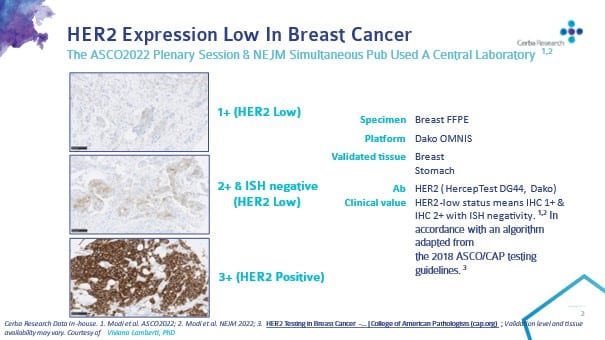COVID-19 changed the shape of clinical development. But you can be certain with Cerba Research: This blog describes a trial for a COVID-19 prophylactic medication. In the spring of 2020, we initiated complete central laboratory support for a substantial virology study in just 10 days. A typical timeline for a project like this would be eight weeks.
A Friend in Need
A long-standing pharma client wanted to evaluate a previously approved drug for safety and efficacy in a new indication — as post-exposure prophylaxis for a viral respiratory illness. The FDA had granted rapid protocol approval for a Phase III study, which our client was anxious to initiate. For rapid study startup, the sponsor needed complete central laboratory support, including custom test kits distributed to various North American locations — and the associated database build — in 10 days.
Time from project kickoff to collection kits received at sites
- Sample management: drug susceptibility testing and blood samples for PK
- Logistics support
- Safety testing: hematology, biochemistry, urinalysis
- RT-PCR through GenMark ePlex® Respiratory Pathogen Panel
- Hologic SARS-CoV-2 (Panther Fusion® System) for COVID-19 testing
- COVID-19 testing in stool samples
We hit our target! And within that breathtaking timeline, we handled protocol changes, logistics challenges, and more.
How Infectious Disease Preparation Along With Communication, Flexibility, and Resourcefulness Made It All Work Out
Cerba Research is highly capable, with extensive global experience in infectious disease. Our cutting-edge laboratories provide the full portfolio of harmonized laboratory testing services required in infectious disease research including vaccine immunogenicity and efficacy, neutralization assays, immunoassays, viral load, and BSL 3 environments. Our seven centers in Ghent, Johannesburg, Montpellier, New York, Paris, Shanghai, Sydney, Taiwan, and Tokyo enable you to target disease populations even in the most remote locations with results easily cross-referenced via our unified global clinical data management platform.
In fact, our industry-leading expertise was called on at the start of the pandemic by the Belgian government, which invited Cerba Research to join an elite consortium task force of leading pharma, biotech, IT, and academia to scale up COVID-19 testing. Our teams worked at risk and over evenings and weekends to ensure rapid testing of the most exposed populations within Belgium.
But even the best resources and pedigree cannot make up for human elements like grit, cooperation, and good sense. In this study, paired with our top laboratories and full portfolio of testing services, the following factors made all the difference and were key to our successful service.
Communication and transparency
To meet this timeline, the Cerba Research team knew it would take dynamic organization, collaboration, adaptability, and understanding. Multiple daily meetings kept hurdles in sight and gave the team space to brainstorm solutions. Daily internal calls included project, trial setup, sample handling, and logistics staff along with associate trial managers, scientific liaisons, and regional heads of project management in disparate time zones. In addition, daily teleconferences with client representatives ensured key milestones were met. Even the contracts and proposal team completed their work within the collapsed timeline.
Flexibility and persistence
During this time, ramped-up border controls were causing delays and uncertainty in international shipping. And with demand for hospital PPE outstripping availability, supplies for both sample collection and testing were scarce. Yet initially, despite these ongoing shortages and supply chain interruptions, the Cerba Research team worked with suppliers and obtained everything needed — with one exception.
At 5 p.m. on a Friday, word came that a shipment of swabs from Belgium was held up in customs, indefinitely. This was a major setback, as the site supplies were to be shipped the following Tuesday. Swabs sourced locally did not pass validation with the assay being used.
Finally, the Cerba Research facility in Belgium shipped the supplies as a series of smaller-value lots to expedite their passage through customs. By building our test kits in-house, we ensure rapid, accurate production and quick reorder turnaround times. In this case, the kit-building team received the swabs late afternoon on Monday, QC’d them, and started shipping complete kits that evening.
Expertise and initiative
Protocol amendments can wreak havoc with any timeline — especially with one as truncated as this. In response to a last-minute client request to fulfill an updated FDA requirement, we added stool PCR testing and located a lab with a validated process to perform the assay. Other amendments our team negotiated successfully included a change from ambient to refrigerated shipping and its resultant cascade of adjustments to the related database, supplies, and manuals. Cerba Research also added value by tapping our network to help recruit health care workers for the study and connected the sponsor with a nonprofit able to assist with funding.
Motivation and Accomplishment Yield Insights
With infectious disease, timing is critical. Inspired by our long-term client and eager to go above and beyond to solve a global dilemma, our team was wholeheartedly determined to achieve this timeline. Because we have partnered with clients in key areas such as influenza, tuberculosis, malaria, HIV, and arboviruses as well as many other indications, we were confident we could get the job done. What we learned was that close collaboration overcomes the highest hurdles. We succeeded because of:
- Tireless and transparent internal and external communications
- Outstanding organization and management
- Flexibility to adapt to changing needs
- Global scientific experts and logistics network
- In-house kit production
- Highly capable team for building a unified global study database
Despite today’s changeable landscape, you can think outside the box. Or you can change it. Cerba Research has the expertise, assets, and optimal timing to empower our clients to bring new life-changing therapies to patients worldwide sooner. Even as the shape of clinical development changes, you can be certain with Cerba Research.



